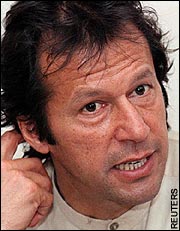Daydreamer

Age: 124
Total Posts: 777
Points: 0
Location:
United Kingdom, United Kingdom
Introduction: Key facts
What is forced marriage? by Narina Anwar
All information courtesy of Narina Anwar, www.missdorthory.com
"Marriage shall be entered into only with the free and full consent of the intending spouses."
The difference between an arranged marriage and a forced marriage is choice; in an arranged marriage, both individuals meet through family or friends and even a dating agency but they get to choose whether they marry each other. There is no pressure, emotional or physical, however in a forced marriage one or both parties are given no choice but to marry. Pressure here can be psychological or physical. This is a 'forced marriage' and is contrary to the universal declaration of human rights.
Forced marriage is not sanctioned within any culture or religion.
Forced marriage has been recognised in the UK as a form of domestic violence and a serious abuse of human rights.
Hundreds of young people as young as 13 are taken abroad each year and forced into marriage. Forced marriage is NOT the same as an arranged marriage in which both spouses can choose whether or not to accept the arrangement.
In forced marriage one or both of the spouses do not consent to the marriage or consent is extracted under duress. Duress includes both physical and emotional pressure. l Forced marriage can involve child abuse, including abduction, violence, rape, enforced pregnancy and enforced abortion.
Refusing to marry can place a young person at risk of murder, also known as 'honour killing'
The majority of cases in the UK involve South Asian families, but also involves families from East Asia, the Middle East, Europe and Africa. Education professionals should be alert to potential warning signs and consider (whilst being careful not to assume) that forced marriage may be the reason.
Some of the motives prompting Forced Marriage
Protecting 'family honour'. Controlling unwanted behaviour and sexuality - particularly the behaviour and sexuality of women.
Responding to peer group or family pressure.
Attempting to strengthen family links. Ensuring land, property and wealth remain within the family. Protecting perceived cultural ideals (which can often be misguided or out-of date).
Protecting perceived religious ideals which are misguided.
Preventing 'unsuitable' relationships, e.g. outside the ethnic, cultural, religious or caste group. Assisting claims for residence and citizenship. Fulfilling long-standing family commitments.